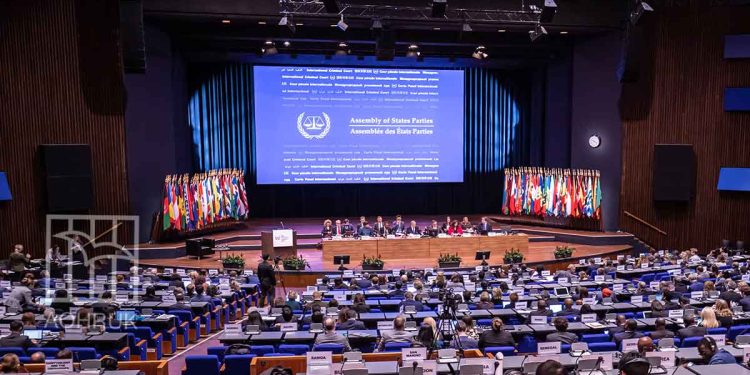The International Criminal Court (ICC) has reaffirmed the arrest warrants issued against Israeli Prime Minister Benjamin Netanyahu and former Defence Minister Yoav Gallant on charges of committing war crimes and crimes against humanity in the Gaza Strip. The Court rejected, for the second time, the occupation’s appeal against the warrants.
In a ten-page ruling, the Court stated that the occupation “reiterated the same previous arguments” regarding the Court’s lack of jurisdiction, asserting that it is not required to reopen discussions on jurisdiction before executing the arrest warrants. It clarified that the warrants were issued “through an independent legal process linked to individual criminal responsibility for grave international crimes, rather than the status of a state.”
This development comes two years after one of the most extensively documented genocides in modern history, perpetrated by the Israeli occupation in Gaza since 8 October 2023. The onslaught has killed over 67,000 Palestinians and injured more than 170,000, the majority women and children, while destroying nearly 90% of the enclave’s civilian infrastructure.
These crimes fall under Article (6) of the Rome Statute, which defines genocide as “acts committed with intent to destroy, in whole or in part, a national, ethnical, racial or religious group,” including mass killing, inflicting physical and mental harm, and imposing living conditions intended to bring about the group’s destruction. All of these elements, the Court noted, have been met in Gaza during the recent assault.
In its appeal, the Israeli occupation claimed that the Court “has no jurisdiction” over crimes committed in Palestinian territories. The ICC, however, responded that Palestine has been a State Party to the Rome Statute since 2021, and that its jurisdiction therefore extends to all territories occupied in 1967, including Gaza, the West Bank, and East Jerusalem.
The Court further clarified that its rejection of the occupation’s appeal is unrelated to any political or diplomatic process, but rather concerns “documented criminal acts supported by field evidence and official testimonies.” It affirmed that the arrest warrants will remain in force “until the suspects surrender or are handed over to justice.”
According to Israeli media reports, some Israeli legal circles had suggested that the ceasefire and prisoner exchange agreement in Gaza might freeze the Court’s proceedings. However, the ICC confirmed that the warrants pertain to crimes committed between October 2023 and May 2024, prior to any subsequent political agreements, and can only be suspended if the occupation challenges the admissibility of the case under Article (19/7) of the Rome Statute, which it has not done.
The arrest warrants are based on the principle of command responsibility, which holds political and military leaders accountable for crimes committed by their subordinates if they knew of them or failed to prevent or punish those responsible. The charges against Netanyahu and Gallant include wilful killing, targeting of civilians, starvation as a method of warfare, and the use of siege as a tool of genocide.
By reaffirming the warrants, the ICC has opened the door to a new phase of international accountability, despite efforts by some Western states to politicise international justice in order to shield Israeli leaders from prosecution.
The Court’s decision represents another step towards breaking the long-standing impunity enjoyed by Israeli officials. It comes amid growing human rights calls for the prosecution of all those responsible for the crimes committed in Gaza, which amount to a recognised act of genocide under international law.
Amid Western silence and the reluctance of some governments to enforce the arrest warrants, the International Criminal Court now faces a real test of its ability to apply international law equally; a test that will determine whether global justice can truly uphold the principle that Palestinian lives are not beyond the reach of law.



























